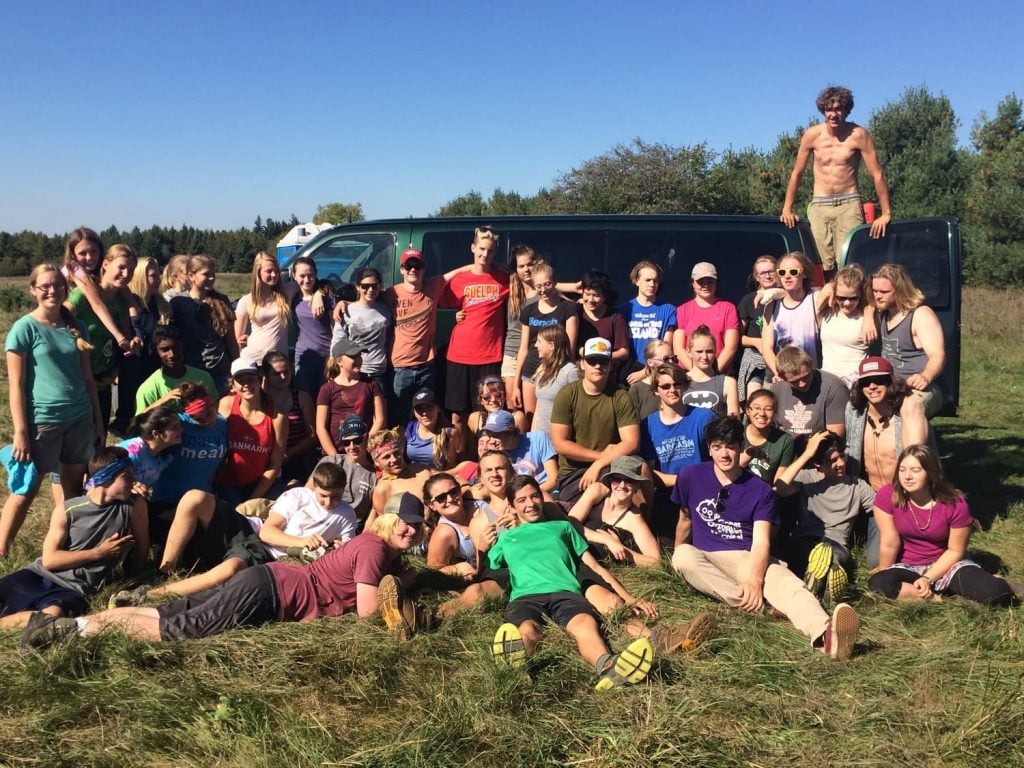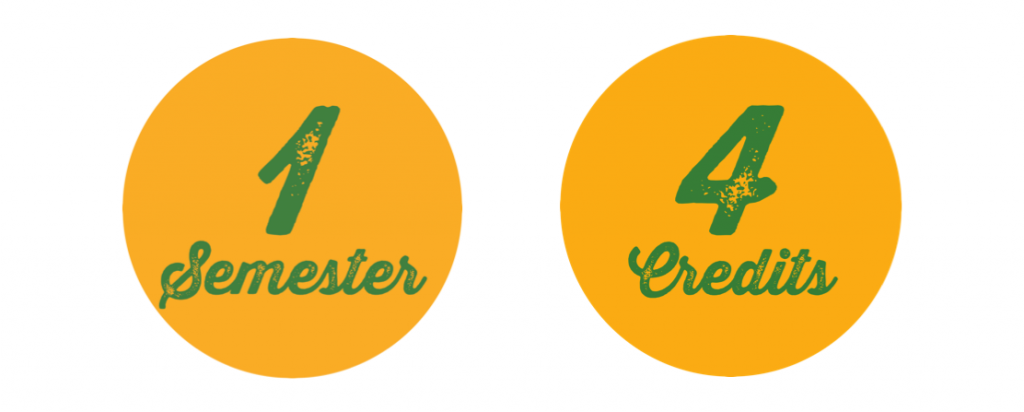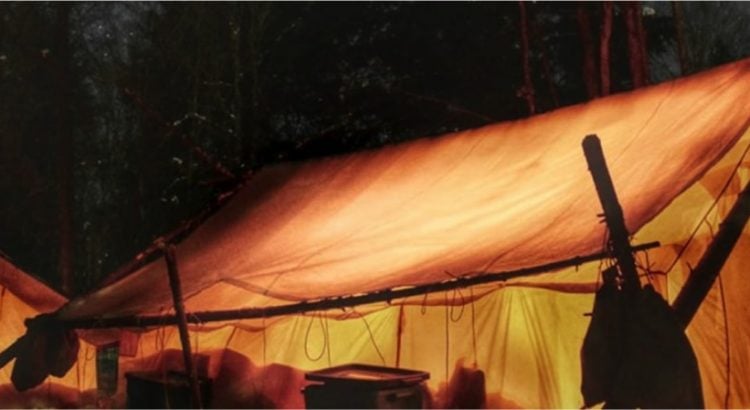CELP is a 4 credit semester-long climate and environmental leadership program. As a community of 26, students do an outdoor education experience, teach grade elementary students, take their English, Civics and Careers courses in the context of current climate issues and form lasting friendships through experiential learning.
“An important thing to me about CELP is it gives me the freedom to bring my heart into my education, and in doing so I discover more about myself.”
Community — Learn in a unique setting
- Learn with students from other schools in an experiential way
- Build friendships that go beyond the walls of the classroom
- Network with community groups that are working on climate issues
Environment — Develop a relationship with the natural world
- Develop an appreciation for nature through outdoor activities
- Reflect on your experience through writing in English
- Bike around Guelph to learn about local climate issues and actions
Leadership — Lead by example
- Practice leadership skills through team-building activities and tasks
- Teach over 300 elementary students
- Collaborate on a community day meal
.

Program Fee
There is a course fee of around $500 for CELP to pay for our trips and our off site location. No student is denied the opportunity to take CELP due to financial reasons. Please let us know if this is a concern- WE WANT YOU TO APPLY. If money is an issue we have a bursary application process.
CELP and Headwaters Bursary Application
Program — Earn Four Grade 10 Credits

Students in CELP earn the following Grade 10 Credits — Read on below to find out more
- NEW! SNC 2D/ 2P (Compulsory credit)
- GLC 204 Career Studies (Half Credit – Compulsory)
- CHV 204 Civics (Half Credit – Compulsory)
- PAD 204 Outdoor Activities (Health and Physical Education)
- IDP 304 Interdisciplinary Studies
SNC 2D/ SNC 2P Science (Full credit- Compulsory)
CELP Science will aim to build scientific literacy while enriching the curriculum with hands-on opportunities at the Arboretum and visits to the University of Guelph. The Earth and Space Unit on Climate Change will be integrated with Climate action in Civics. Biology will cover plant and animal cell structure and animal systems. Chemical reactions and balancing chemical equations will prepare students for Grade 11 Chemistry. An optics unit will cover the properties and characteristics of light.
Highlights include: connections and visits to the University of Guelph and a Focus on Nature photography workshop exploring properties of light.
GLC 2O4 Career Studies (Half Credit – Compulsory)
Students in Careers explore what personality types, skills, and goals they already have through self-inventories and creating a personal profile. They explore what options are available after high school by researching post-secondary education programs. Outdoor activities help students build teamwork, communication and leadership skills they can apply to career development. Students learn how to look for part-time or summer jobs and create a portfolio including a resume, cover letter in preparation for a “mock interview” that prepares them for a real job interview.
CHV 2O4 Civics (Half Credit – Compulsory)
In Civics, students look at what it means to be an “active citizen” at the global, national, provincial, municipal and individual level. Students learn about how decision-making bodies work at each of these levels and what power they have at each of these levels to change things. Global, national, and provincial issues are examined. Current municipal issues are researched during the biking unit where students bike to different municipal areas (e.g., different neighbourhoods and City Hall) to learn about an issues that are then discussed during debates on topics.
PAD 2O4 Outdoor Activities (Health and Physical Education)
The CELP semester begins with a field camp. Skills related to safe and sustainable camping are taught and assessed.On trip, and throughout the semester, students keep a journal of their leadership and skill development and relationship to nature that is assessed under the Phys Ed and Interdisciplinary Studies Credits. Throughout the semester, students take turns, in small groups, to prepare a healthy meal for the Friday Community Day meal. During the Civics unit, students have a day of Can-Bike instruction to learn how to bike safely in an urban context.
IDP 3O4 Interdisciplinary Studies
The Interdisciplinary Studies credit is the “glue” that allows the other CELP credits to be combined. Students keep a journal throughout the semester that allows them to reflect on their learning during the program, the experience of developing a community, the skills they have learned and the what they have learned about environmental issues and sustainability. Students also learn how to pass on their knowledge by teaching the elemetary student EcoStars Environmental Education Program.

